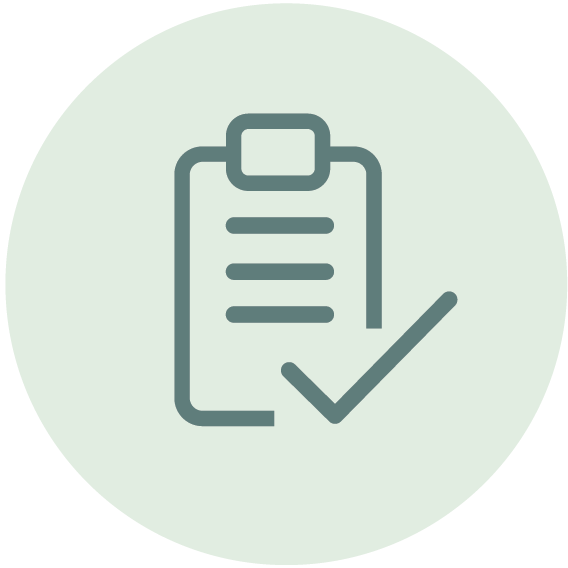This course covers methods and practices for implementing and managing enterprise-scale data analytics solutions using Microsoft Fabric. Students will build on existing analytics experience and will learn how to use Microsoft Fabric components, including lakehouses, data warehouses, notebooks, dataflows, data pipelines, and semantic models, to create and deploy analytics assets.
«The instructor was excellent. Insightful, clear, and extremely knowledgeable. A great teacher with lots of real-life examples that were relevant to the course. Where the lab system failed she pulled the experience back to a 10/10 course. I will be recommending my colleagues ms. Naumova as an instructor.»
|
|
Prerequisites |
This course is best suited for those who have the PL-300 certification or similar expertise in using Power BI for data transformation, modeling, visualization, and sharing. Also, learners should have prior experience in building and deploying data analytics solutions at the enterprise level.
|
|
Target audience |
The primary audience for this course is data professionals with experience in data modeling, extraction, and analytics. This course is designed for professionals who want to use Microsoft Fabric to create and deploy enterprise-scale data analytics solutions.
Job role: Data Analyst, Data Engineer

This training will help you prepare for exam DP-600: Implementing Analytics Solutions Using Microsoft Fabric.
By passing this exam you will earn the new Microsoft Certified: Fabric Analytics Engineer Associate certification.

Ingest Data with Dataflows Gen2 in Microsoft Fabric
Data ingestion is crucial in analytics. Microsoft Fabric's Data Factory offers Dataflows for visually creating multi-step data ingestion and transformation using Power Query Online.
In this module, you'll learn how to:
Ingest data with Spark and Microsoft Fabric notebooks
Discover how to use Apache Spark and Python for data ingestion into a Microsoft Fabric lakehouse. Fabric notebooks provide a scalable and systematic solution.
In this module, you'll learn how to:
Use Data Factory pipelines in Microsoft Fabric
Microsoft Fabric includes Data Factory capabilities, including the ability to create pipelines that orchestrate data ingestion and transformation tasks.
In this module, you'll learn how to:
Get started with lakehouses in Microsoft Fabric
Lakehouses merge data lake storage flexibility with data warehouse analytics. Microsoft Fabric offers a lakehouse solution for comprehensive analytics on a single SaaS platform.
In this module, you'll learn how to:
Organize a Fabric lakehouse using medallion architecture design
Explore the potential of the medallion architecture design in Microsoft Fabric. Organize and transform your data across Bronze, Silver, and Gold layers of a lakehouse for optimized analytics.
In this module, you'll learn how to:
Use Apache Spark in Microsoft Fabric
Apache Spark is a core technology for large-scale data analytics. Microsoft Fabric provides support for Spark clusters, enabling you to analyze and process data in a Lakehouse at scale.
In this module, you'll learn how to:
Work with Delta Lake tables in Microsoft Fabric
Tables in a Microsoft Fabric lakehouse are based on the Delta Lake storage format commonly used in Apache Spark. By using the enhanced capabilities of delta tables, you can create advanced analytics solutions.
In this module, you'll learn how to:
Get started with data warehouses in Microsoft Fabric
Data warehouses are analytical stores built on a relational schema to support SQL queries. Microsoft Fabric enables you to create a relational data warehouse in your workspace and integrate it easily with other elements of your end-to-end analytics solution.
In this module, you'll learn how to:
Load data into a Microsoft Fabric data warehouse
Data warehouse in Microsoft Fabric is a comprehensive platform for data and analytics, featuring advanced query processing and full transactional T-SQL capabilities for easy data management and analysis.
In this module, you'll:
Query a data warehouse in Microsoft Fabric
Data warehouse in Microsoft Fabric is a comprehensive platform for data and analytics, featuring advanced query processing and full transactional T-SQL capabilities for easy data management and analysis.
In this module, you'll:
Monitor a Microsoft Fabric data warehouse
A data warehouse is a vital component of an enterprise analytics solution. It's important to learn how to monitor a data warehouse so you can better understand the activity that occurs in it.
After completing this module, you'll be able to:
Understand scalability in Power BI
Scalable data models enable enterprise-scale analytics in Power BI. Implement data modeling best practices, use large dataset storage format, and practice building a star schema to design analytics solutions that can scale.
By the end of this module, you’ll be able to:
Create Power BI model relationships
Power BI model relationships form the basis of a tabular model. Define Power BI model relationships, set up relationships, recognize DAX relationship functions, and describe relationship evaluation.
By the end of this module, you’ll be able to:
Use tools to optimize Power BI performance
Use tools to develop, manage, and optimize Power BI data model and DAX query performance.
After completing this module, you'll be able to:
Enforce Power BI model security
Enforce model security in Power BI using row-level security and object-level security.
By the end of this module, you’ll be able to:

Pris: 24 500 NOK.
Kurset varer i 4 dager, kl. 09:00–16:00.
Instruktørledet som klasseromskurs eller live virtuelt. Undervisningen kombinerer forelesning, demonstrasjoner og praktiske gjennomganger av Fabric-komponenter.
Engelsk kursmateriell, engelsktalende instruktør.
Data Analysts og Data Engineers med erfaring fra datamodellering, ETL/ELT og analyse, som skal bygge og forvalte enterprise-scale analy seløsninger i Microsoft Fabric.
Kurset er best egnet for deltakere med PL-300-kompetanse (Power BI: transformasjon, modellering, visualisering, deling) eller tilsvarende erfaring, samt praktisk arbeid med analyse-løsninger i virksomhet.
Ingest/transform med Dataflows Gen2, pipelines og Copy Data
Lakehouse i Fabric: Spark, Delta Lake, og medallion-arkitektur (Bronze/Silver/Gold)
Data warehouse i Fabric: lasting, T-SQL-spørringer, sikkerhet og overvåkning
Sanntid med Eventstreams og eventhouse, samt real-time dashboards
Power BI for enterprise-skala: skalerbare datamodeller, relasjoner, ytelsesverktøy (Performance Analyzer, DAX Studio, Tabular Editor) og RLS/OLS
Miljøstyring, CI/CD og monitorering i Fabric
Kurset forbereder til eksamen DP-600: Implementing Analytics Solutions Using Microsoft Fabric, som gir Microsoft Certified: Fabric Analytics Engineer Associate. (Eksamen er ikke inkludert.)
Digital kursdokumentasjon. Ved klasseromskurs er lunsj og bevertning inkludert.
Egen Fabric-/M365-tilgang er en fordel for videre arbeid, men du får veiledning i oppsett og bruk under kurset.
Ja – vi skreddersyr agenda, kildedata og øvelser til deres miljø og leverer gjerne bedriftsinternt (norsk/engelsk).

Vil du bygge videre etter DP-600? Her er naturlige steg for team som jobber med data-til-innsikt i Fabric og Power BI. Alle kurs kan skreddersys og leveres bedriftsinternt.
DP-700: Microsoft Fabric Data Engineer – datainntak, orkestrering og sanntid.
DP-601: Implementing a Lakehouse with Microsoft Fabric (Applied Skills) – lakehouse og medallion i praksis.
DP-602: Implement a Data Warehouse with Microsoft Fabric (Applied Skills) – last, spørre, sikre og overvåke DW.
DP-604: Implement a data science and machine learning solution for AI with Microsoft Fabric (Applied Skills) – ML/AI-scenarier på Fabric.
PL-300: Design and Manage Analytics Solutions Using Power BI – ytelse, modellkvalitet og deling.
Tips: For et komplett Fabric-løp: DP-700 → DP-601/DP-602 → DP-600, og legg til DP-603 for sanntid og DP-604 når ML/AI-scenarier skal inn i plattformen.